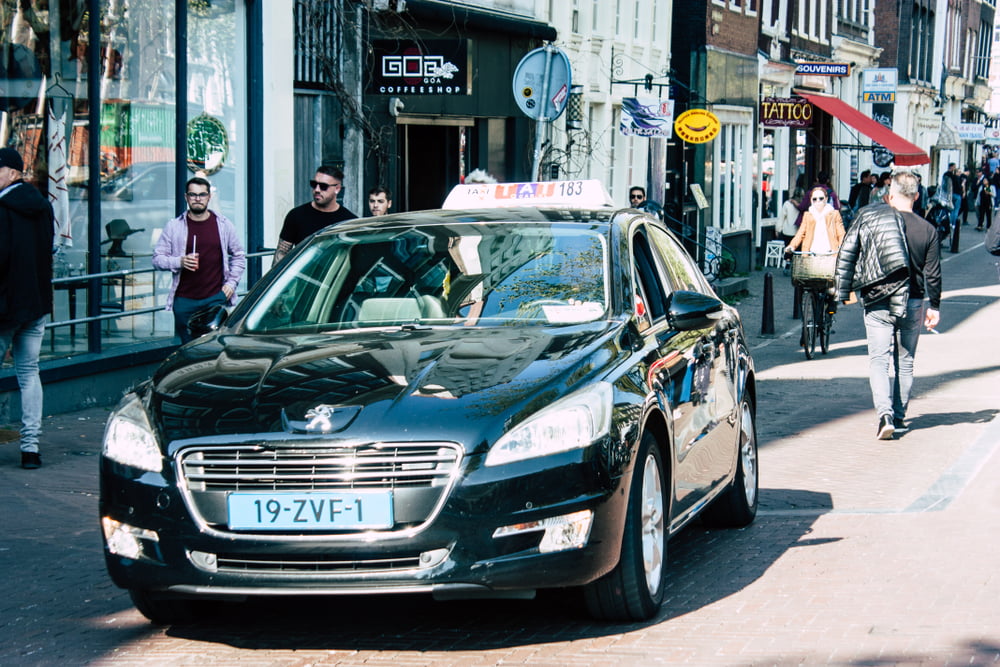Amsterdam is the largest taxi market in the country. The taxi industry is a vulnerable industry, which is susceptible to crime and interesting for criminals. The approach taken by the taxi sector is currently lagging behind the seriousness and complexity of the problem. This is what the researchers conclude in the report Taxi! Malicious activities and (subversive) crime in the Amsterdam taxi industry. Amsterdam is the taxi city of the Netherlands.
The taxi industry is important for the city because tourists, but also residents of Amsterdam, use it. The taxi market in Amsterdam is saturated and competition is fierce. In recent years, the industry has had to deal with all kinds of developments, such as the liberalization of the market in 2012, but also the emergence of online platforms such as Uber, which has resulted in a lot of competition, a surplus of providers, dissatisfaction with the policy and no improvement in quality or price. A lot is wrong in the taxi industry, which also increases the vulnerability and opportunity for mala fide and illegal practices.
The research shows that this can lead to the vulnerability and accessibility of the taxi industry to various forms of mala fide activities and (subversive) crime. The taxi industry is a good cover for criminal activities because there is no structural control and if there is control, it is difficult to get a finger behind it.
The approach currently lags behind the seriousness and complexity of the problem, according to the researchers. At the same time, there are plenty of opportunities to both improve the image and reduce the abuses within the sector – together with the well-intentioned and bona fide taxi entrepreneurs. For example, the researchers recommend regulating the taxi market by means of a volume policy, but also by conducting awareness-raising talks with taxi drivers with the message that criminals abuse taxis and taxi drivers.
"Taxi industry prone to crime and interesting for criminals"

Tackling the problem
The investigation Taxi! was drawn up by a research team from bureau Beke. They did this on behalf of the covenant partners of the Amsterdam-Amstelland Regional Information and Expertise Center (RIEC), which is committed to combating organized crime and subversion. The content of the report emphasizes the importance of integrated cooperation and the erection of preventive barriers. The services involved, consisting of the Public Prosecution Service, the Amsterdam-Amstelland police, the Tax and Customs Administration, the Municipality of Amsterdam and the Human Environment and Transport Inspectorate, will set to work on the basis of the report's recommendations to erect preventive barriers to make the sector more resilient. to make.
For example, the Municipality of Amsterdam will introduce a new taxi system from 2022, in which there are equal rules for the order and boarding market and it can work towards more reliable, safer and (more) bona fide taxi transport. To this end, the municipality is looking for cooperation with the ministries involved in order to be able to use the legal options innovatively and effectively, in order to be able to check as much as possible upfront on both the licenses of companies and drivers. Discussions are also held with the industry, focusing on topics such as integrity, transparency and a healthy industry, tackling discrimination and road safety. The discussions with Uber in the context of the social charter are an example of this. In addition, the taxis that move within organized drug crime can be tackled integrally in a RIEC context.
Vulnerable industries
Tackling the abuse of companies is one of the areas of focus of the RIEC Amsterdam-Amstelland. Companies can play a (crucial) role in subversive forms of crime such as the cocaine trade. By working together in an integrated way, we obtain more information and we can intervene better in sectors that are vulnerable to being abused for drug trafficking and money laundering. Signals of subversion can be submitted by partners to the RIEC association.
Also read: VOG: TCA director Hedy Borreman is shocked by the numbers

